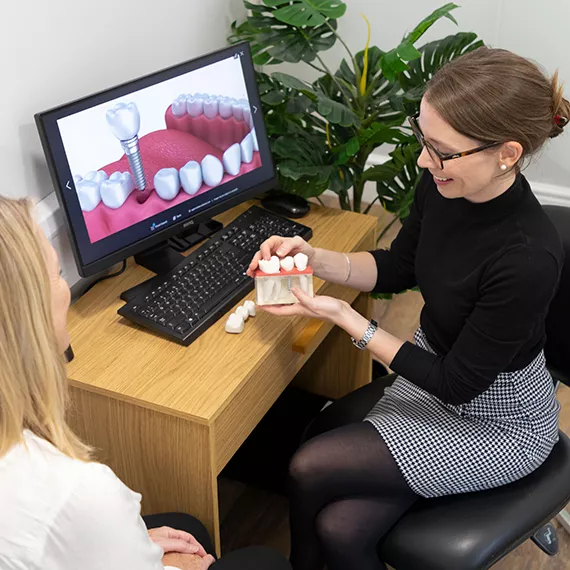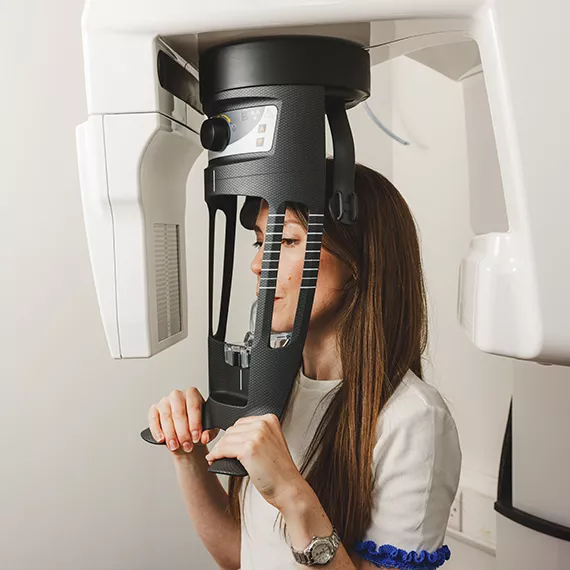Implants
A dental implant is a way of replacing one or more missing teeth. An implant is a fixed option using a titanium screw that is placed directly into the jaw bone. Over time, the screw fuses with the bone and acts as a root like a normal tooth. If you are considering dental implants, book a consultation with us at Victoria Road Dental Practice in Exmouth.
This screw then is used to support replacement bridges, crowns, and removable dentures. There are different types of implant available depending on your requirements:
- Single dental implants
- Multiple dental implants
- All on 4 dental implants – this is where four single implants are placed which then support all teeth in one arch, such as a denture.
Dental implants don’t decay, but they need the same routine care, checkups, and cleaning as natural teeth.
- Brush twice daily with a soft-bristled toothbrush and low-abrasive toothpaste.
- Use an interdental brush to clean hard-to-reach places.
- Clean thoroughly under and around the dental implant crown.
- Floss daily with unwaxed or implant-specific floss.
- Visit the dental hygienist for regular professional clean
Dental implants are like natural teeth.
A dental implant is much like a natural tooth. It’s solid and stable, meaning it will stay in place without worrying about falling out.
Dental implants are cost-effective.
Getting a dental implant is a big deal. At first, the initial price of one may be more than any other restoration solution. However, the payoff is longevity. With proper care, dental implants can last up to a lifetime.
It offers several advantages:
- Natural look – It gives patients the confidence to smile and eat.
- Comfortable fit – People can laugh without worrying about what will happen if their dentures fall out.
- It’s long-lasting and reliable – With proper care, it can last a long time.
- Improved ability to eat and chew – Implants allow you to eat properly.
- Enhanced facial and bone features – Dental implants can preserve natural tissues and reduce bone resorption.
What does the treatment involve?
Firstly, you will be booked in for a consultation with our implantologist who will discuss what type of implant will be most suited to you.
If implants are the best option for you the next step is to take impressions and scan called a CBCT. Following this you will provided with a full treatment plan and associated costs.
If you are happy to go ahead with the treatment plan we would arrange for you to see our hygienist for a deep clean. An appointment for the surgical procedure will then be booked.
Following the surgical procedure where the implant is placed we need to wait 3-4 months for healing. At this stage we will take further impressions to create crowns, bridges or dentures.
Book your dental implant consultation online here or call us on 01395 272 018.



